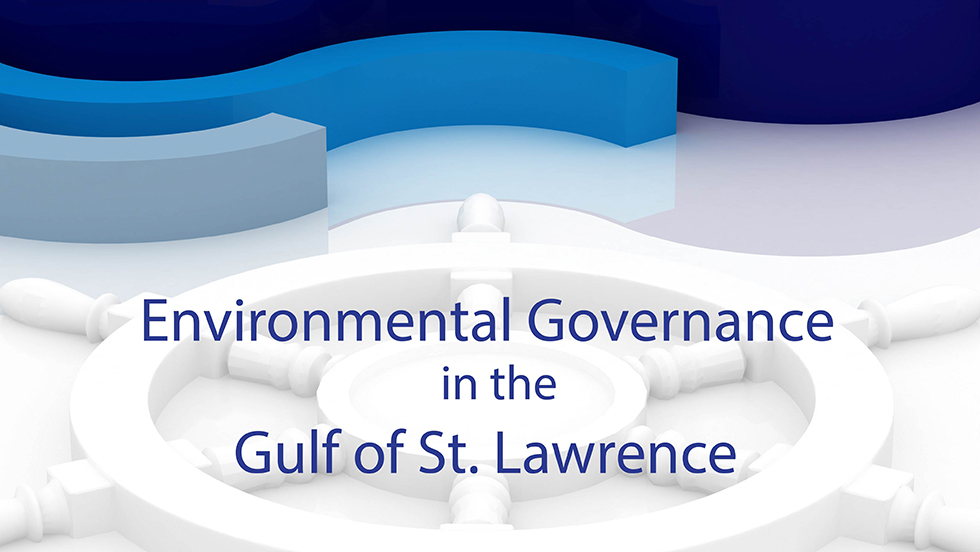
Extended Bio - Peter Clancy
Research Framework Overview
My research centres on power relationships and public policy making in a series of natural resource sectors. One theme that runs through these studies is the critical impact of state agencies as regulatory intermediaries between the natural resource and its appropriators. Another theme involves the tensions that can surface between classes of owners and appropriators, particularly between small producers and corporate processors. A third theme highlights the significance of science inputs to resource management policy, both as epistemic frameworks and as generators of models and data streams. A fourth theme involves the defining policy network characteristics of particular resource sectors, as one compares renewable resources such as wildlife, fisheries, forests and water to non-renewables like minerals and petroleum.
1/ natural resources research
My involvement in natural resource politics began with doctoral studies on political development in Canada’s Northwest Territories, with a particular focus on the wildlife economy and the impacts of state interventions on Aboriginal peoples. This work was expanded from a historical (pre-1967) to a contemporary focus in publications dealing with caribou management (Clancy, 1987a), fur trapping activities (Clancy, 1987b, 1991a), and the modernization of the northern wildlife regime (Clancy, 1990a, 1990b). The class politics dimension of the wildlife regime was explored more explicitly (Clancy, 1992a, 2001b), as was the impact of wildlife disputes in the political mobilization of northern Dene and Inuit groups (Clancy, 1992b, 1994a).
So far as fisheries are concerned, I have explored multiple aspects of inter-jurisdictional conflict within Canada’s federal system. These include the complications of devolving freshwater fisheries management to northern Territories (Clancy, 1991b). Other studies have explored the multi-species and multi-producer hierarchies of marine fisheries on the Atlantic coast and in the Gulf of St. Lawrence (Clancy, 2008a). The institutional dynamics of the federal Department of Fisheries and Oceans came under analysis as well (Clancy, 2000b).
My work on forestry politics began with studies of the struggles of small private woodlot owners facing corporate processors in Maritime Canada (Clancy, 1992c, 2001a). Attention then shifted to forest management and the impacts of technical background and organizational affiliation. The centerpiece of this work is the book, Against the Grain: Foresters and Politics in Nova Scotia (Sandberg and Clancy, 2000). This monograph won the Canadian Historical Association’s Clio Award (Atlantic Canada). Another series of studies explored the allocative impacts of third-party certification for sustainable forest practices (Clancy, 1998; Clancy and Sandberg, 1997). The shifting power relations between small producers, corporations and state in a globalizing era was addressed in several studies (Clancy and Sandberg, 1992, 1995, 1997; Sandberg and Clancy, 1996). Finally, the interplay of industry, science and forest regulation was analyzed in a comparison of spruce budworm spray policies in Nova Scotia and New Brunswick (Sandberg and Clancy, 2002).
Turning to non-renewable resources, my initial study of bargaining relations between corporate and state interests involved a case study of Cominco’s Pine Point mine development for the extraction of lead and zinc (Clancy, 1987c). I returned to the theme of industry-state engagement with a comparative analysis of three major sectors in the book, Micropolitics and Canadian Business: Paper, Steel and the Airlines (Clancy, 2004). Wider questions of business political representation are addressed in a recent chapter contribution (Clancy, 2014b).
Another resource research project concerns oil and gas exploitation in the offshore region of Atlantic Canada. Offshore petroleum basins form a distinct set within the global industry, and are shaped by generic pressures (Clancy 2007, 2008b). Each case, however, involves a complex interweaving of industry, state and non-governmental interests. My major contribution to this literature is the book-length monograph, Offshore Petroleum Politics: Regulation and Risk in the Scotian Basin (Clancy, 2011). It applies a model of the basin development cycle to key federal and provincial policy decisions in the exploration, production, and distribution of Scotian Shelf oil and gas. After building a detailed interpretation of state structures involved in offshore decision-making, it analyzes six policy cases ranging from royalty collection, industrial linkages and project management to onshore gas distribution, liquid gas processing and Aboriginal rights claims.
2/ recent and ongoing research
My most recently completed project involves the political underpinnings of freshwater utilization and management in Canada. The result is Freshwater Politics in Canada (Clancy, 2014a). This work surveys freshwater policies on a sub-sectoral basis, while presenting the resource in a “political” framework where questions of power can be grasped. The presentation is supported by a series of watershed case studies in the respective chapters.
Taken together, these studies span a number of state jurisdictions at both national and provincial levels. Other studies have explored the relations of Aboriginal rights and land claims settlements to resource management regimes (Clancy, 1990a, 1999, 2000a, 2011).
Ongoing research includes two projects. The first investigates the politics of shale gas regulation within a social licence framework. The second is a study of the shifting coordinate of wildlife harvesting and conservation policy in the Canadian territorial north, centred on deep case studies of caribou, polar bears and whales.
Overall, this work has equipped me with a comprehensive working knowledge of both the policy literature and the practical research issues that arise in the analysis of natural resource industries and their associated state structures. I regard the present project as a natural extension and an adaptation of my longstanding interest in natural resource politics.
References
a/ Books:
2014a. Clancy, Peter. Freshwater Politics in Canada. Toronto: University of Toronto Press.
2011. Clancy, Peter. Offshore Petroleum Politics: Regulation and Risk in the Scotian Basin. Vancouver: UBC Press.
2004. Clancy, Peter. Micropolitics and Canadian Business: Paper, Steel and the Airlines. Peterborough: Broadview Press.
2000. Sandberg, L. Anders and Peter Clancy. Against the Grain: Foresters and Politics in Nova Scotia. Vancouver: University of British Columbia Press.
- Winner of the Clio Award 2000 (Atlantic Canada) from the Canadian Historical Association, May 2001.
b/ Articles & Book Chapters:
2014b. Clancy, Peter. “Business Interests and Civil Society in Canada.” In Miriam Smith (ed.) Group Politics and Social Movements in Canada, 2nd ed., Toronto: University of Toronto Press.
2008a. Clancy, Peter. “Chasing Whose Fish? Atlantic Eastcoast Fisheries Conflicts.” In Mark Sproule-Jones, Carolyn Johns and Tim Heinmiller (eds.) Water Policy and Politics in Canada. Kingston: McGill-Queen’s University Press.
2008b. Clancy, Peter. “Offshore Petroleum Politics: A Changing Frontier in a Global System.” In Michael Howlett and Keith Brownsey (eds.), Canada’s Resource Economy in Transition: the Past, Present and Future of Canada’s Staple Industries. Toronto: Emond Montgomery.
2007. Clancy, Peter. “Offshore Petroleum Politics: A Changing Frontier in a Global System.” Policy and Society 26(1).
2002. Sandberg, L. Anders and Peter Clancy. “Politics, Science and the Spruce Budworm in New Brunswick and Nova Scotia.” Journal of Canadian Studies 37(2) (Summer).
2001a. Clancy, Peter. “Atlantic Canada: The Politics of Public and Private Forestry.” In Michael Howlett (ed.) Canadian Forest Policy: Regimes, Policy Dynamics and Institutional Adaptations. Toronto: University of Toronto Press.
2001b. Clancy, Peter. “The Northwest Territories: Old and New Class Politics on the Northern Frontier.” In Michael Howlett and Keith Brownsey (eds.) The Provincial State in Canada. Peterborough: Broadview Press.
2000a. Clancy, Peter. “Delgamuukw v. British Columbia: Redefining Relations Between Aboriginal Peoples and the Crown.” In Martin W. Westmacott and Hugh Mellon (eds.) Political Dispute and Judicial Review. Toronto: Nelson.
2000b. Clancy, Peter. “The H2Woes of the DFO.” In Leslie A. Pal (ed.) How Ottawa Spends, 2000-2001. Toronto: Oxford University Press.
1999. Clancy, Peter. “The Politics and Administration of Aboriginal Claims.” In M. W. Westmacott and Hugh Mellon (eds.) Public Administration and Policy, Prentice Hall Allyn and Bacon.
1998. Clancy, Peter. “Some Political Aspects of Certification for Sustainable Forest Management in Canada.” In L. Anders Sandberg and Sverker Sorlin (eds.) The Challenge of Sustainability: Interdisciplinary and Cross-Cultural Perspectives on Environmentalism. Montreal: Black Rose Books.
1997. Clancy, Peter and L. Anders Sandberg. “Formulating Standards for Sustainable Forest Management.” Business Strategy and the Environment, 6 (October).
1996. Sandberg, L. Anders and Peter Clancy. “Property Rights, Forest Use, and Forest Management in Nova Scotia.” Journal of Canadian Studies, 31(1&2) (Spring).
1995. Clancy, Peter and L. Anders Sandberg. “Crisis and Opportunity: The Political Economy of the Stora Mill Closure Controversy in Nova Scotia.” Business Strategy and the Environment, 4(4) (October).
1994a. Clancy, Peter. “The North: A Region of Permeable Boundaries.” In James P. Bickerton and Alain G. Gagnon (eds.) Canadian Politics 2nd ed. Peterborough: Broadview Press.
1992a. Clancy, Peter. “The Northwest Territories: Class Politics on the Northern Frontier.” In Michael Howlett and Keith Brownsey (eds.) The Provincial State: Politics in Canada's Provinces and Territories. Toronto: Copp Clark.
1992b. Clancy, Peter. “Political Autonomy in the North.” In D. Brown and R. Young (eds.) Canada: The State of the Federation 1992. Kingston: Institute of Intergovernmental Relations.
1992c. Clancy, Peter. “The Politics of Pulpwood Marketing in Nova Scotia, 1960-1985.” In L. Anders Sandberg (ed.) Trouble in the Woods. Fredericton: Acadiensis Press.
1992. Clancy, Peter and L. Anders Sandberg. “Maritime Forest Sector Development: A Question of Hard Choices.” In L. Anders Sandberg (ed.) Trouble in the Woods. Fredericton: Acadiensis Press.
1991a. Clancy, Peter. “State Policy and the Native Trapper: Post-War Policy Toward Fur in the NWT.” In J. Friesen and K. Abel (eds.) Aboriginal Resource Use in Canada. Winnipeg: University of Manitoba Press.
1991b. Clancy, Peter. “The Freshwater Fishery Delegation: The Politics of Jurisdictional Transfer.” The Northern Review. No. 4 (February).
1990a. Clancy, Peter. “Native Peoples and Politics in the Northwest Territories.” In Alain G. Gagnon and James P. Bickerton (eds.) Canadian Politics: An Introduction to the Discipline. Peterborough: Broadview Press.
1990b. Clancy, Peter. “Political Devolution and Wildlife Management.” In Gurston Dacks (ed.) Devolution and Constitutional Development in the North. Ottawa: Carleton University Press.
1987a. Clancy, Peter. “Native Hunters and the State: The Caribou Crisis in the Northwest Territories.” SNID Occasional Paper No. 87-101. Programme of Studies in National and International Development, Queen's University.
1987b. Clancy, Peter. “The Making of Canadian Eskimo Policy 1952-1962: The Life and Times of the Eskimo Affairs Committee.” Arctic 40(3) (September).
1987c. Clancy, Peter. “Working on the Railway: A Case Study in Capital-State Relations.” Canadian Public Administration 30(3) (Fall).
This research is supported by the Social Sciences and Humanities Research Council of Canada.
